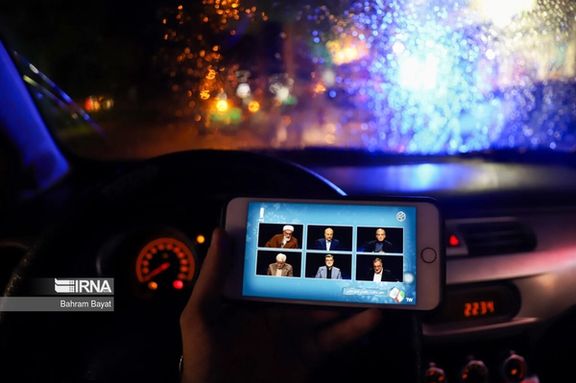Mostafa Pourmohammadi repeatedly brought up the 2015 nuclear deal with the West, the two-decade-old Crescent deal controversy, and the Financial Action Task Force (FATF) blacklisting of Iran that has seriously impacted foreign trade alongside US sanctions.
Pourmohammadi also urged the most hardline and anti-West candidate, former nuclear negotiator Saeed Jalili, to speak about his achievements in negotiations with Western powers.
Pourmohammadi, a former intelligence and judicial official, scores very low in opinion polls but stands out as the most clear and methodical candidate.
The pro-reform candidate, Masoud Pezeshkian, held hardliners to task for storming the embassies of the United Kingdom in November 2011 and Saudi Arabia in January 2016, insisting that were not held responsible for these incidents and their consequences.
Two other hardliners, Alireza Zakani and Amir-Hossein Ghazizadeh, relentlessly targeted the pro-reform Masoud Pezeshkian and Pourmohammadi, both of whom are highly critical of Jalili’s isolationist views and the claim that the Iranian economy can improve only by relying on domestic resources and potentials.
“For an eight percent economic growth, we need $200 billion of foreign investment. This is not possible without fixing our relations with the world,” Pezeshkian said.
Many believe Zakani and Ghazizadeh were only approved by the election watchdog, the Guardian Council, to play a supporting act to Jalili and withdraw in his favor after the debates. Pourmohammadi and Pezeshkian voiced such suspicions in the debates.
Jalili and other hardliner candidates also attacked the moderate former President Hassan Rouhani and his government. They accused him of making a disadvantageous nuclear deal, failing to address the problem of US sanctions after Donald Trump’s unilateral withdrawal from the JCPOA, bad relations with neighboring countries, failing to procure Covid vaccines in a timely manner, as well as internet censorship.
They repeatedly dubbed Pezeshkian’s potential government, if he were to win, as "the third Rouhani administration," presumably to associate him with the numerous shortcomings and even alleged treacheries they have attributed to Rouhani and his administration.
Pundits say two separate events before and after the Tuesday debate are likely to affect the turnout. First was a speech by Supreme Leader Ali Khamenei where he enumerated the characteristics of a desirable president and stated the path of foreign policy the future president is expected to take.
Many believe that in thinly veiled terms he gave his blessing to Saeed Jalili who “does not look beyond” the Iranian borders for solving the country’s problems and values its “inherent capacities.” To a lesser extent, Khamenei's remarks could also be seen as a nod to Ghalibaf, who has attempted to appear less aggressive than Jalili and his two "supporting candidates."
His speech, many say, also ruled out Pezeshkian who has already allied with pro-engagement former Foreign Minister Mohammad-Javad Zarif, considered as the architect and most ardent advocate of the 2015 nuclear deal and negotiation with the United States and other Western powers.
The second event was the release of a video by former reformist President Mohammad Khatami which may convince some hesitant Iranians to vote for Pezeshkian, whom he described as an honest politician, as they did for Hassan Rouhani in 2017 when Khatami appealed to them.
Khamenei also said high turnout in Friday’s elections would “bring honor” to the Islamic Republic and strengthen it.“Enemies wag their tongues whenever turnout is low in elections,’ he said.
Khamenei’s insistence that high turnout is proof of the legitimacy of the ruling establishment may backfire and instigate a lower turnout because many Pezeshkian supporters do not wish their votes to be interpreted as an endorsement of the establishment or Khamenei and his leadership but will not hugely affect the turnout of the supporters of the four hardliner candidates, except Ghalibaf to some extent, who rarely need any encouragement to vote.








